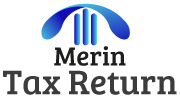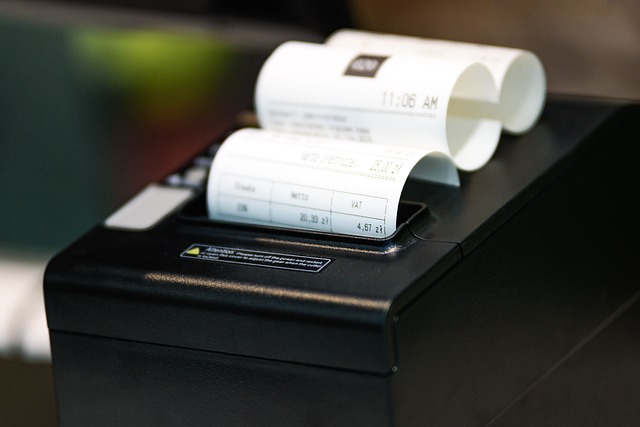How Much Do Accountants Charge for VAT Returns UK?
How Much Do Accountants Charge for VAT Returns UK? VAT is an integral part of business enterprise in the UK.Whether a partnership, limited company, or sole trader, if your taxable sales exceed the £90,000 threshold then you must pay VAT (2025).Many businesses voluntarily register for VAT to recover their input taxes.Filing VAT returns can be challenging for businesses that use multiple VAT schemes or have a high volume of transactions.This has made most entrepreneurs opt to hire an accountant who will efficiently handle the VAT returns.But how much do UK accountants have to pay for VAT returns?
Average Costs of VAT Return Services in the UK
Here’s a breakdown of typical accountant fees for VAT returns:
| Type of Service | Average Cost (Per VAT Return) |
| Basic VAT Return (Simple Business) | £50 – £150 |
| Standard VAT Return (Moderate Complexity) | £150 – £300 |
| Complex VAT Return (High Volume/International) | £300 – £600+ |
| Flat Rate Scheme (FRS) Return | £50 – £200 |
| Monthly VAT Returns (Subscription) | £100 – £400/month |
| Annual Accounting Scheme | £200 – £500/year |
Factors Affecting Accountant Fees for VAT Returns
The cost of hiring an accountant for VAT returns varies depending on several factors:
Business Size & Complexity
- Small businesses with straightforward transactions pay less.
- Medium to large businesses with high transaction volumes or international sales pay more.
- Complex industries (e.g., construction, e-commerce) often require more detailed VAT handling.
Frequency of VAT Returns
- Standard VAT accounting (quarterly returns) – Most common, lower fees.
- Monthly VAT returns – More frequent filings may increase costs.
- Annual Accounting Scheme – Reduced filing frequency but may still require periodic reviews.
VAT Scheme Used
- Flat Rate Scheme (FRS) – Simpler, usually cheaper.
- Cash Accounting Scheme – Moderate complexity.
- Standard VAT Accounting – More detailed, higher fees.
- Retail or Margin Schemes – Specialised, potentially higher costs.
Accountant’s Experience & Location
- Freelance accountants or small firms charge £50 – £150 per return.
- Mid-sized accounting firms charge £150 – £300 per return.
- Large accounting firms or specialists may charge £300 – £600+.
- London-based accountants tend to be more expensive than those in other regions.
Additional Services
- Bookkeeping & record-keeping – Extra fees if the accountant manages invoices and expenses.
- VAT inspections & disputes – Additional charges if HMRC investigates.
- Software integration (e.g., Xero, QuickBooks) – Some accountants include this, others charge extra.
Why is Filing VAT Returns Important for Businesses in the UK?
Value Added Tax (VAT) is a consumption tax levied on most goods and services in the UK. Businesses that meet the VAT registration threshold must register with HM Revenue & Customs (HMRC) and file regular VAT returns.
Filing VAT returns is a legal obligation for VAT-registered businesses, but it also offers several financial and operational benefits. This blog explores why VAT return filing is crucial for UK businesses, covering compliance, financial management, reputation, and more.
Legal Compliance and Avoiding Penalties
Mandatory Requirement for VAT-Registered Businesses
Any UK business with a taxable turnover exceeding £90,000 (as of 2024) must register for VAT and submit periodic VAT returns. Failure to do so can result in:
Fines and penalties – HMRC imposes late filing penalties and interest charges.
Legal action – Persistent non-compliance may lead to investigations or prosecution.
Avoiding HMRC Penalties
HMRC has a structured penalty system for late VAT returns:
First late submission – A warning (no penalty).
Repeated late filings – Penalties ranging from £100 to 15% of the VAT due.
Deliberate evasion – Can lead to criminal charges.
By filing VAT returns on time, businesses avoid unnecessary fines and maintain good standing with tax authorities.
Accurate Financial Management
Tracking Business Revenue and Expenditure
VAT returns require businesses to record:
- Output VAT (charged on sales).
- Input VAT (paid on purchases).
This process helps businesses:
- Monitor cash flow.
- Identify tax-deductible expenses.
- Improve budgeting and financial planning.
Claiming VAT Refunds
Many businesses (especially those with zero-rated or exempt sales) pay more input VAT than they collect. Filing VAT returns allows them to reclaim the difference from HMRC, improving liquidity.
Preventing Cash Flow Issues
Late or incorrect VAT filings can lead to unexpected tax bills, penalties, or cash flow disruptions. Proper VAT management ensures businesses stay financially stable.
Enhancing Business Reputation
Professionalism and Trustworthiness
Clients and suppliers prefer working with compliant businesses. Regular VAT filings demonstrate:
- Financial transparency.
- Regulatory adherence.
- Professional credibility.
Better Supplier and Lender Relationships
Many suppliers and lenders check a company’s VAT compliance before entering contracts. A strong VAT filing record can improve:
- Credit terms.
- Loan approvals.
- Business partnerships.
Preventing HMRC Investigations
Reducing Audit Risks
HMRC uses sophisticated data analytics to detect discrepancies in VAT returns. Common red flags include:
- Large or frequent refund claims.
- Inconsistent reporting.
- Sudden drops in VAT liability.
Accurate and timely filings reduce the risk of an HMRC audit.
Avoiding Costly Disputes
Errors in VAT returns can lead to:
- Backdated tax demands.
- Legal disputes.
Proper record-keeping and filing prevent these issues.
VAT Schemes and Financial Benefits
Choosing the Right VAT Scheme
UK businesses can benefit from different VAT schemes:
Flat Rate Scheme (FRS) – Simplified VAT calculations for small businesses.
Cash Accounting Scheme – Pay VAT only when customers pay you.
Annual Accounting Scheme – File one return per year instead of quarterly.
Filing VAT returns correctly ensures businesses maximize these schemes’ benefits.
Improving Profit Margins
Efficient VAT management helps businesses:
- Reclaim eligible input VAT.
- Reduce unnecessary tax liabilities.
- Optimize pricing strategies.
Digital Compliance (Making Tax Digital – MTD)
Since April 2022, most VAT-registered businesses must comply with Making Tax Digital (MTD). This means:
- Using MTD-compatible software.
- Keeping digital records.
- Submitting VAT returns via approved software.
Filing VAT returns digitally ensures compliance with MTD and avoids penalties.
Supporting Business Growth
Expanding into New Markets
Many international customers and suppliers expect VAT compliance. Proper VAT filings help businesses:
- Trade within the EU (post-Brexit rules apply).
- Comply with international tax regulations.
Preparing for Higher Turnover
As businesses grow, their VAT obligations may change. Regular filings help them:
- Adjust to new thresholds.
- Plan for increased VAT liabilities.
Tips for Reducing VAT Return Accounting Costs in the UK
Here are some tips for reducing accounting costs for the VAT return in the UK. The VAT return is necessary for financial compliance in the UK. This makes the cost of managing VAT returns an issue that is very painful for many entities where this has to be undertaken, particularly SMEs. High accounting costs, errors leading to penalties, and inefficient processes can needlessly increase the costs.
Understand VAT Schemes to Choose the Right One
One of the most effective ways to reduce VAT accounting costs is by selecting the most suitable VAT scheme for your business. The UK offers several VAT schemes, each with different administrative requirements:
Standard VAT Accounting
- Businesses report VAT on sales and purchases quarterly.
- Suitable for larger businesses with steady cash flow.
- Requires detailed record-keeping, which can increase accounting costs.
Flat Rate Scheme (FRS)
- Simplified scheme where businesses pay a fixed percentage of turnover.
- Reduces paperwork and accounting complexity.
- Ideal for small businesses with low expenses.
Cash Accounting Scheme
- VAT is paid only when customers pay invoices (rather than when issued).
- Helps with cash flow and reduces bad debt risks.
- Suitable for businesses with long payment cycles.
Annual Accounting Scheme
- Businesses submit one VAT return per year with advance payments.
- Reduces administrative workload.
- Best for stable businesses with predictable turnover.
Claim All Eligible VAT Reclaims
Many businesses miss out on reclaiming VAT on allowable expenses, increasing their net VAT liability. Ensure you claim VAT on:
- Business purchases (materials, equipment, software).
- Travel expenses (mileage, accommodation for business trips).
- Professional services (accounting, legal fees).
Common VAT Mistakes and How to Avoid Costly Penalties
HM Revenue and Customs can penalize UK businesses quite strictly and also initiate audits and charge interest on payments. The majority of mistakes occur due to misinterpreting the rules of VAT, not maintaining good records, or in the urgency of filing.
Incorrect application of VAT rate
Not all goods and services are subject to the standard 20% VAT rate. Misapplication can result in underdeclaration or overdeclaration of VAT, leading to underpayment or overpayment that will eventually result in fines or lost reclaim opportunities.
Common VAT Rate Errors:
Charging 20% on zero-rated items (e.g., most food, books, children’s clothing).
Applying 5% reduced rate incorrectly (e.g., energy-saving materials vs. standard home repairs).
Missing exempt supplies (e.g., insurance, education, financial services) that shouldn’t have VAT charged.
How to Avoid:
– Use the HMRC VAT rate guide (gov.uk/vat-rates).
– Check product classifications in your accounting software.
– Review past returns for consistent errors.

